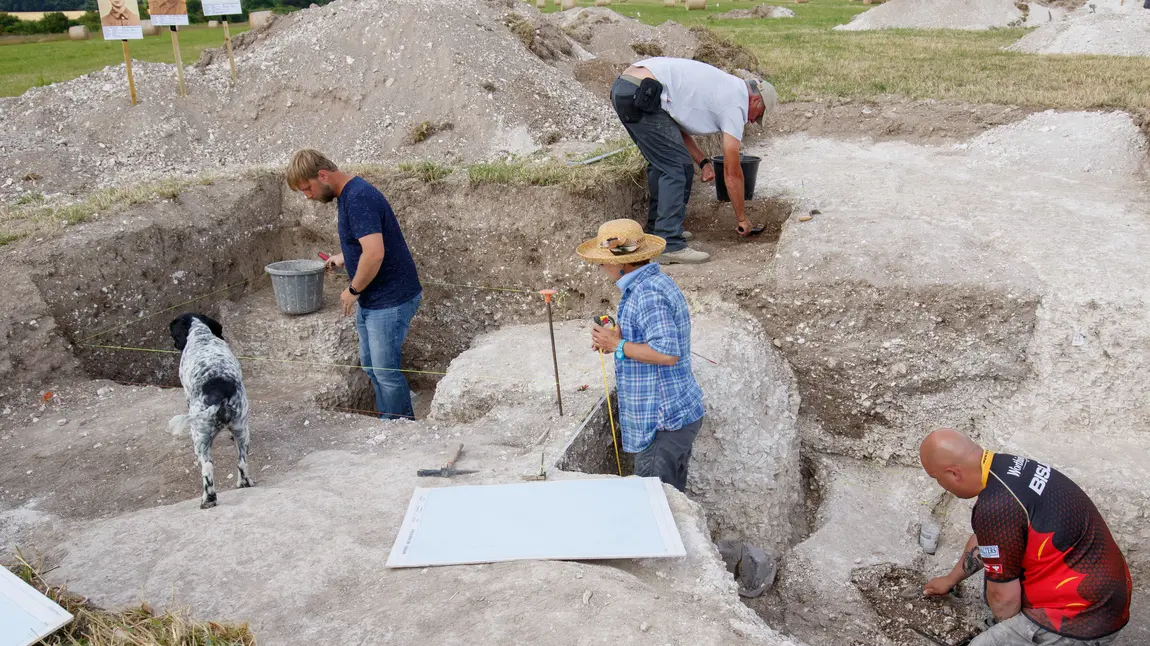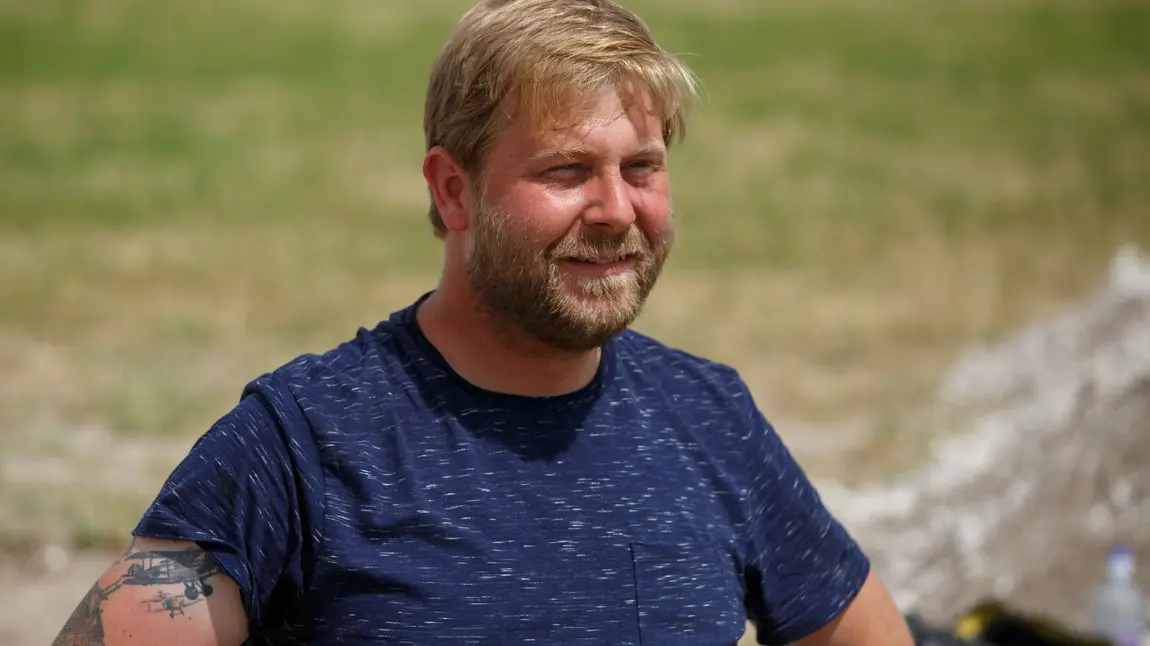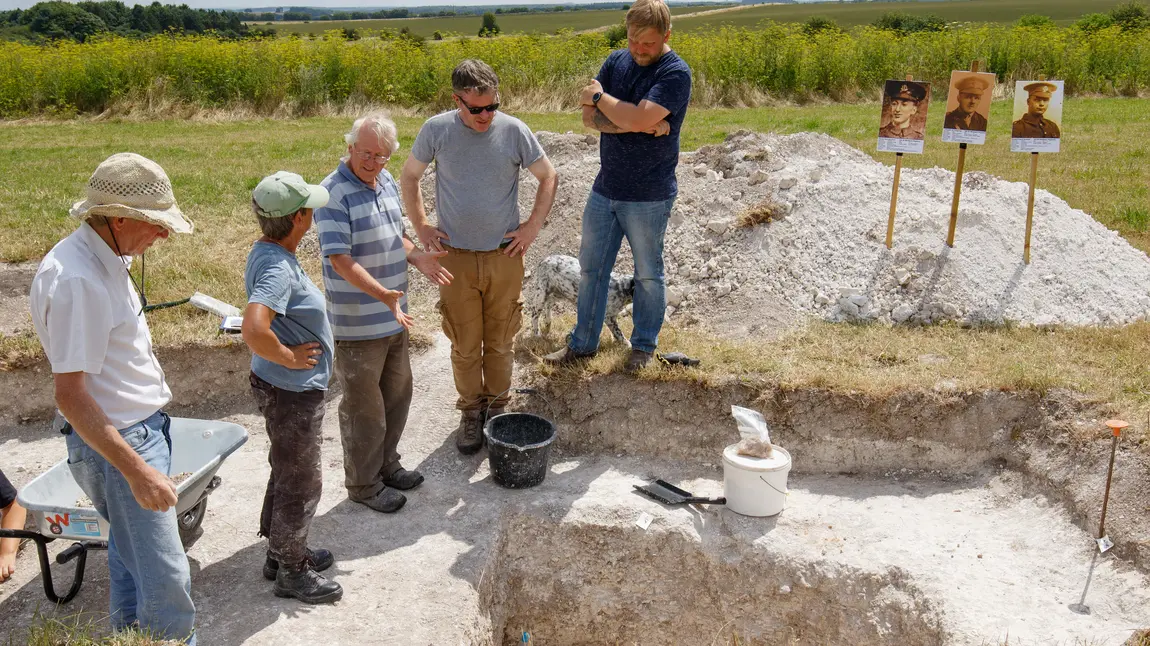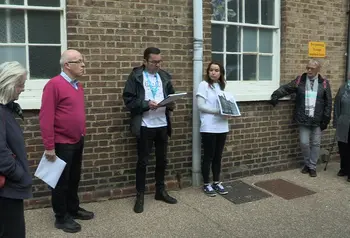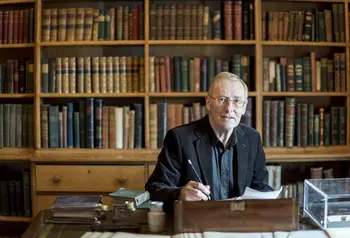Changing lives: ex-marine discovers therapeutic value of archaeology
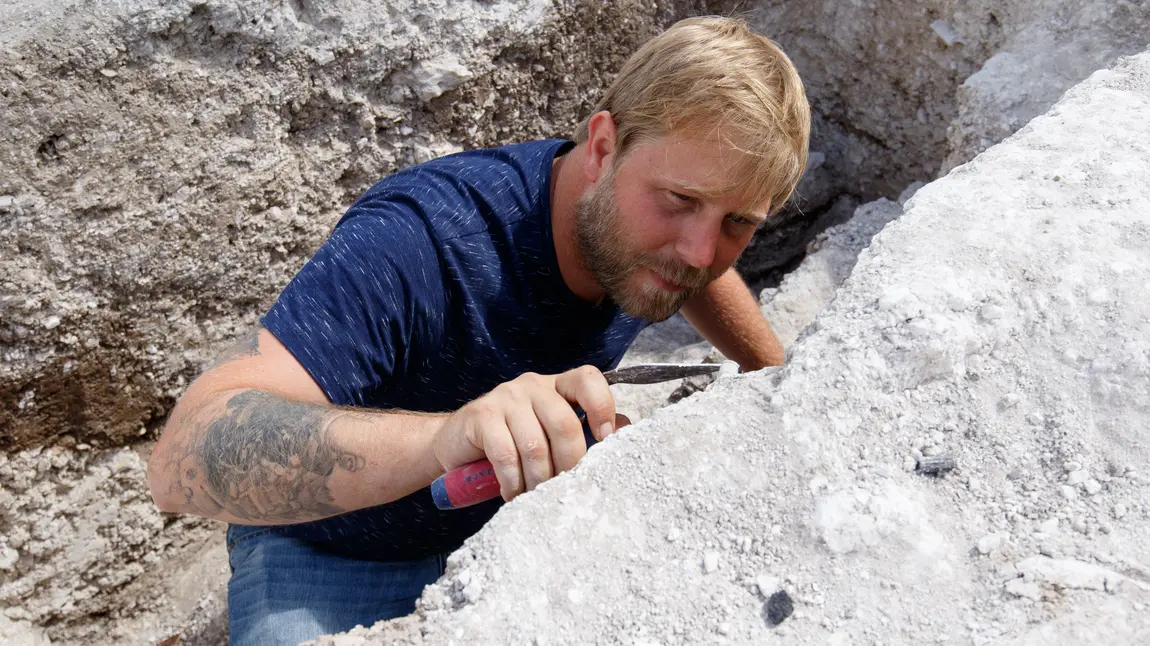
“In the military you don’t talk about your feelings, you have an emotional suit of armour on,” he says. “When you leave this disappears. You are vulnerable and you start feeling all these emotions that you don’t really know how to deal with.”
While on tour in Afghanistan in 2011, Richard was hit by an improvised explosive device (IED) and suffered a spinal injury which led to him being medically discharged.
“It was a big shock. I had a career one day and the next day I didn’t.”
- ex-soldier Richard
“It was a big shock,” he says. “I had a career one day and the next day I didn’t.”
At rock bottom
Richard drifted into jobs working offshore in maritime security but his injuries made the work and lifestyle hard. A colleague’s suicide triggered a bout of post-traumatic stress disorder (PTSD) and he returned home to Taunton in Somerset “at rock bottom”.
It was while seeking support from a veterans charity that he came across Project Florence. Thanks to a National Lottery grant, Wessex Archaeology was working with wounded soldiers and their families to excavate a Bronze Age burial site on Salisbury Plain.
Inspired by a long-standing love of TV's Time Team, Richard decided to go along with his daughter and on their very first dig they found a skeleton. “It was a beautiful day; everything was perfect - it set the scene for an amazing experience,” he says.
Learning new skills
From that moment Richard was hooked. He didn’t miss another dig and started to get involved in mentoring other returning soldiers. Three years later he has just finished a degree in archaeology and is setting up a community interest company to continue the work of Project Florence.
“Archaeology has a huge cathartic value,” he says. “Depending on your state of mind, you can choose to sit there and reflect on life or just concentrate on looking for something in the ground and not think about anything else at all.
“Suffering from PTSD manifests itself in many different ways. For me I have to keep busy and I have to keep doing things. It was something to really focus on and get immersed in and learn new skills.”
According to Richard, archaeology is the perfect fit for ex-military personnel because it mimics the rigour, routine and strength in adversity that they are used to. “In the military you are told when to get up, when to eat breakfast, when to have a shower. In archaeology there are also set processes that you have to go through. You have to do things a certain way and pay attention to detail or you are going to miss something.”
Making new friends
Being involved in the project has also helped Richard to meet people who share the same experiences as him, making new friends and supporting others in the process. “When I left the military I saw myself as being worthless and a failure so I intentionally withdrew from my social circle,” he says.
“By coming to the project I was back with the military guys that spoke my language, who laughed at the sort of things I laughed at. People open up and say ‘I’m having a bad day'. Because we have all been there, we can all empathise. It creates a strong bond and a trusting friendship.”
It has also helped him to re-connect with his family again after prolonged periods of absence. He says: “My family have noticed a huge difference. I’ve become more responsible, more grown up."
“Heritage is not just there to look at but to really get involved with. To use our past to help build our future.”
- Richard
Things have moved quickly with Richard’s new company and they have already organised digs on Salisbury Plain and the Somme with more to come this summer. “I was expecting a very slow, gentle progression and it’s just gone 'boom'. It’s been a steep learning curve. It shows there’s a real need for something to give people suffering from mental health or physical injuries a break and this really works.”
Along with the health and wellbeing benefits, participants in the digs are gaining skills which will help them to establish new careers.
And Richard credits The National Lottery for making his journey possible. “The funding provides a lifeline,” he says. “It does impact on our daily lives – enriching them and allowing people to forge new careers. Heritage is not just there to look at but to really get involved with. To use our past to help build our future. If we can help one more person, it’s definitely worth it.”
